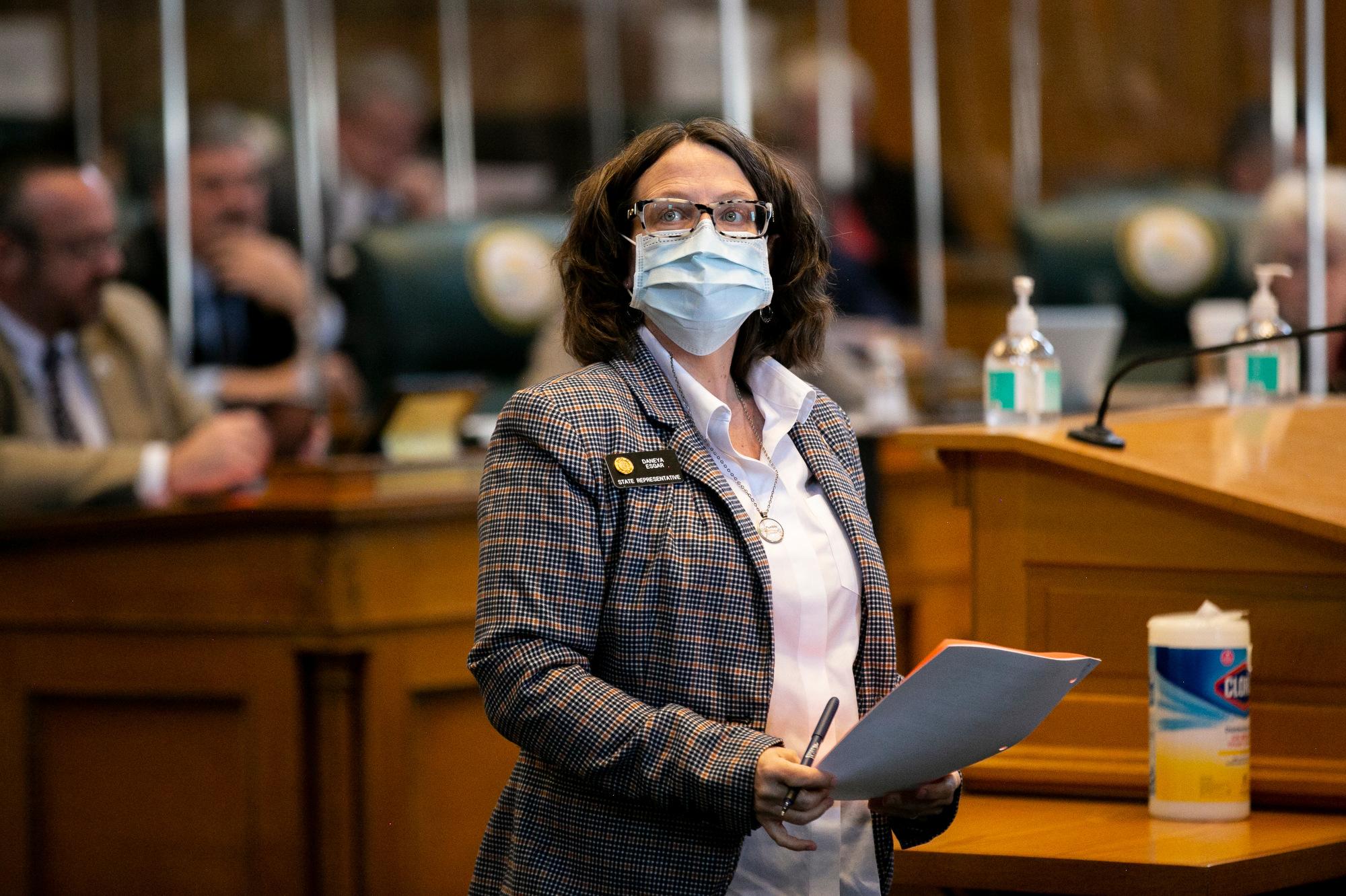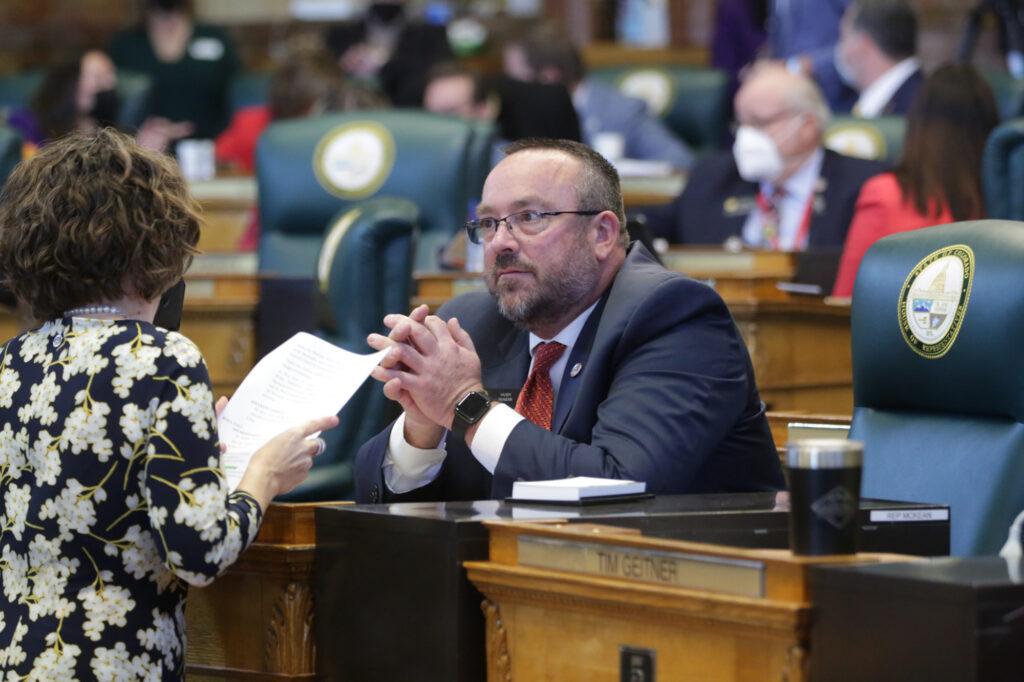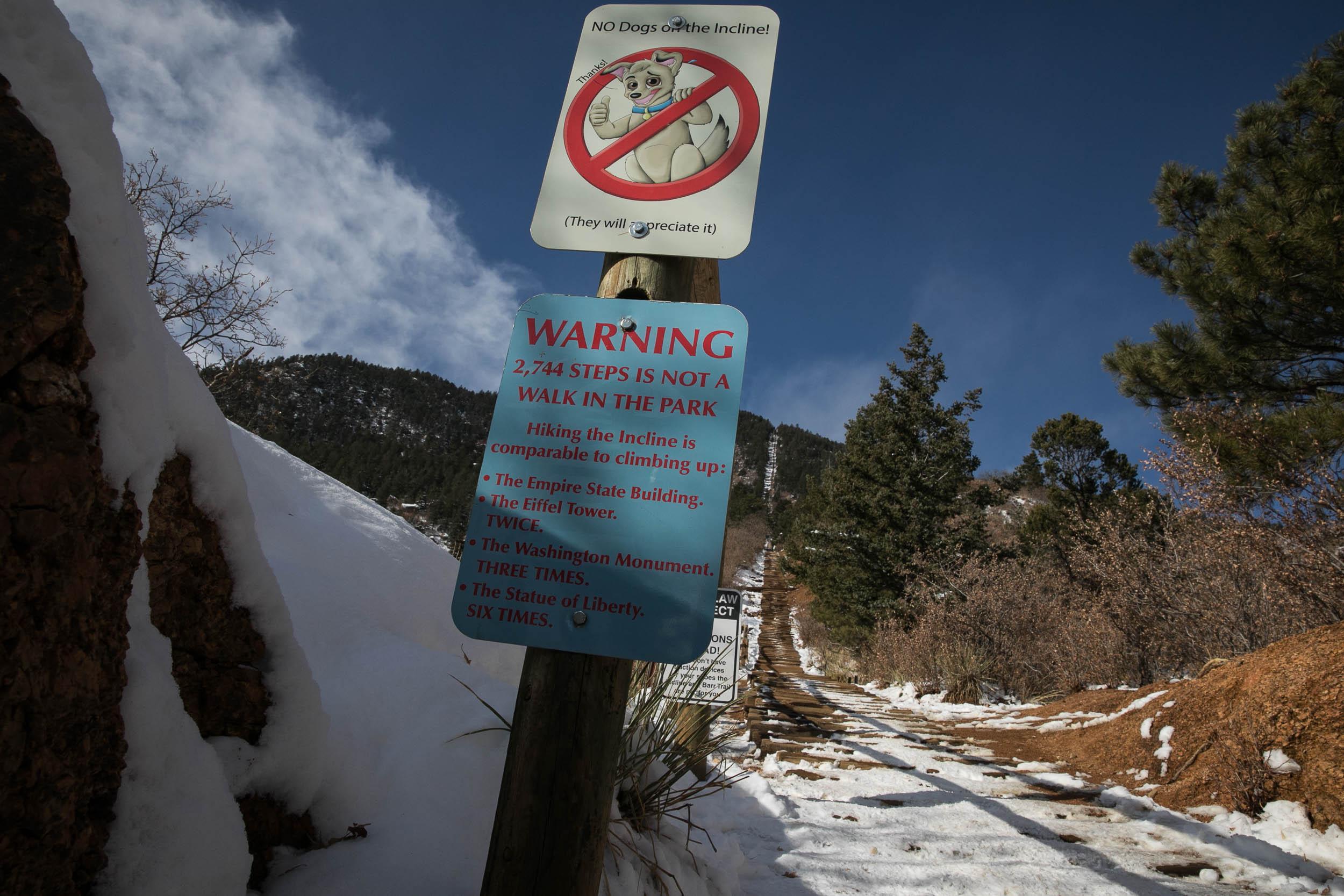
Updated 8:52 a.m., March 12, 2022
Colorado lawmakers shared stories Friday of their most intimate personal decisions, their faith, and their family histories in a debate that continued into Saturday morning of a bill that would codify legal abortion in state law. The overnight arguments likely make this one of the longest single bill debates in state history.
Abortion opponents plan to rally outside the Capitol around midday Saturday.
Democrats argue the bill is necessary because of the potential for the U.S. Supreme Court to strike down the federal right to an abortion, as soon as this summer.
If that happens, abortion would stay legal even without a bill, because nothing in state law explicitly bans it. However, sponsors say they don’t plan to wait for a court ruling to act.
“No one should have their most personal medical decisions controlled by politicians, neighbors, or even complete strangers, but that’s exactly what’s happening across the country,” said Democratic state Rep. and House Majority Leader Daneya Esgar. “It has never been more critical that we protect abortion rights for Coloradans and the region.”
The bill has enough sponsors in both chambers — nearly all of the legislature’s Democratic members have put their names on it — to essentially guarantee its passage.
However, in the measure’s first-floor debate Friday, House Republicans urged their colleagues not to take that step.
“My life had value from the moment of conception. And to allow someone to do away with this invaluable gift is to cheapen everything that is afforded to us that we know as life. Life must be regarded above all,” said Republican state Rep. Tonya Van Beber.
Van Beber was born extremely prematurely, at 22 weeks. She contrasted the intensive care required to save her life with the fact that the bill puts no limits on when in pregnancy a woman can obtain an abortion. Colorado is one of only a handful of states that doesn’t have a gestational limit for the procedure.
“People born at 24 weeks premature are given life-sustaining medical attention. However that very same person can be killed at 24 weeks in utero,” she said. “There is no difference in the livelihood of the one we save at 24 weeks or the one that we take.”
Republican state Rep. Dave Williams cast the issue in specifically religious terms and urged lawmakers to think of it as a moral issue.
“I believe that there is an objective standard — that there is truth — that we have to live by,” said Williams. “If I were to vote for this, it would not only be a violation of my faith, but I would have to give an account to my maker, whenever I depart from this world.”
In addition to the law’s protection of abortion, it also bars state and local governments from restricting access to any form of contraception, and it explicitly states that fertilized eggs, embryos, and fetuses have no legal standing under Colorado law.
As they discussed their positions on the bill, many lawmakers talked about their own pregnancies and miscarriages — or those of their partners — even as members of the two parties drew very different conclusions from those experiences.

Democratic state Rep. Tracey Bernett described being told that her pregnancy might be putting her own life at risk and having to consider whether to end it.
“I was comforted by one thing: that it was my choice, that it was my choice to be made by me and my doctor,” she said.
Later in the debate, Republican Minority Leader Hugh McKean described finding out his unborn child’s heart was not developing properly and a doctor recommending he and his then-wife end the pregnancy or accept that the baby would not live long. They decided to continue and lost the child five days after her birth.
“We made the best decisions we could for the best outcome of a child, of our child who had no voice,” concluded McKean. “I don’t want to lose the humanity of the voice of that child (in state law).”
However, Democratic state Rep. Lisa Cutter — who supports the bill — argued that lawmakers were taking the wrong approach by relating the issue to their own experiences.
“I’m not going to tell you what I think about it, because it doesn’t matter what I think about it … what matters is the person making the decision, the pregnant individual, that’s the only one that matters,” she said.
Reporter Eli Imadali contributed to this story.







